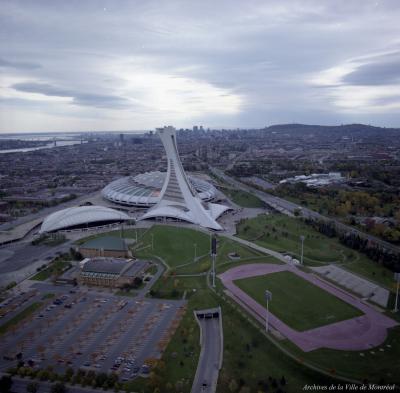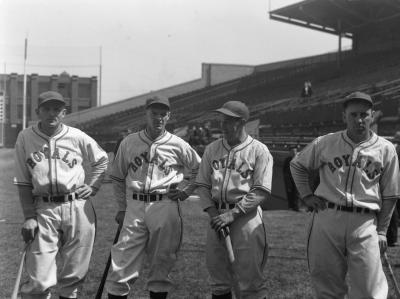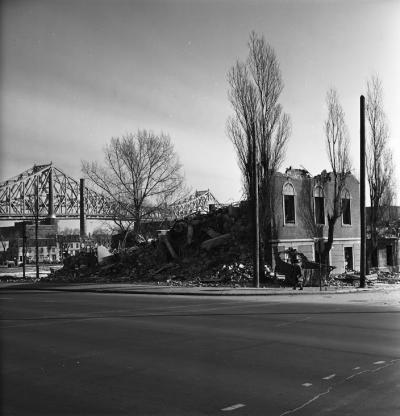For over 30 years, the bar and music venue Club Balattou on rue Saint-Laurent has been a go-to spot for anyone interested in African and Afro-diasporic music.
Club Balattou
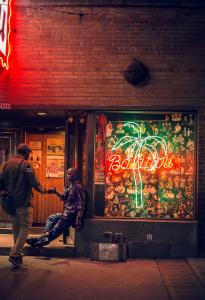
The club’s name, Balattou, comes from “bal à tous,” or “a dance party for all.” The Balattou is a nightclub that mixes rhythms and sounds of all kinds, for an equally diverse audience. Lamine Touré, Balattou’s founder, has created a one-of-a-kind venue, where world-music lovers have congregated for over thirty years.
Touré, originally from Guinea, is a former dancer and choreographer for Guinea’s national ballet. He arrived in Montréal in 1974, at a time when the African community was almost non-existent. Two years later, he opened Café Créole, a bar that quickly became a place where newcomers went for information and community. Despite the café’s success, it closed its doors in 1981. But in Touré’s words, another “cultural initiative that brought everyone together” was in the works. In 1985, he opened Club Balattou in an old strip club. The original mirrors at 4372 boulevard St. Laurent are still there, with a new ambiance and a different clientele.
To open the club, Touré partnered with Suzanne Rousseau. He is the first one to admit she is someone who knows how to get things done; Rousseau has a head for business and Touré handles the cultural side. Most of Montréal’s African bars have had a short lifespan, but the Balattou, the first tropical dance venue in Canada, has been a resounding success since the start with the two of them at the helm.
Rhythms of all kinds
Daby Touré au Balattou en 2005
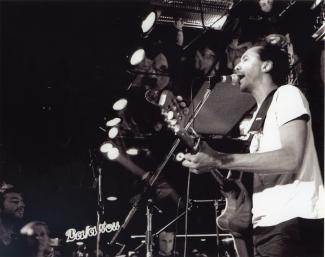
It is not unusual for the dance floor to transform into a stage, where some of world music’s biggest stars have performed. Among the greats who have passed through are the late Papa Wemba and the group Loketo, who made their first Montréal appearances there. Others include the hugely popular Baaba Maal, Ismaël Lô, Mahlathini & The Mahotella Queens, Yaya Diallo, Boubacar Diabaté, Ralph Thamar, and Acoustik Zouk. Over the past thirty years, thousands of artists from Montréal and around the world have brought traditional and modern sounds to the crowds, who are always open to new musical experiences. Club Balattou has also played, and continues to play, a unique role in the history of music in Montréal. The club is now world-renowned, with twenty songs written about it by musicians from all over.
Through different waves of immigration, the Balattou has seen waves of customers from countries like Ghana, Cameroon, Ivory Coast, Ethiopia, and the Democratic Republic of the Congo. Depending on the lineup on a particular night, you will find a room full of people of North African or Latin American decent, from Haiti or other Caribbean islands. And Quebecers with no African heritage, since the Balattou is a go-to spot for world music and a tropical oasis in the city. Club Balattou’s customer base continues to grow and become more diverse. And Touré could not be happier, since the club’s reason for being is bringing people together and sharing the vastness of music with African roots—Touré has managed to do exactly that.
Féfé au Festival Nuits d'Afrique
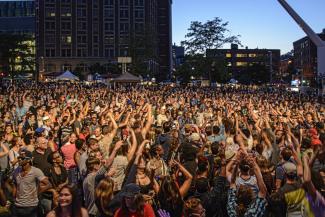
The Balattou is also a main venue for festivals like the prestigious Festival International Nuits d’Afrique, which Touré founded in 1987. Nuits d’Afrique welcomes hundreds of international artists each year and its free outdoor programming gives Montrealers a rare chance to hear rhythms from the African continent, and from Latin American and the Caribbean. Balattou also serves as a venue for the Festival de Musique du Maghreb and Syli d’Or world music showcase.
In 2013, the Ordre national du Québec decorated Touré with the title of Knight for his immense contribution to promoting African cultures. It was a well-deserved honour for Touré, who came to Montréal for a short trip; we can thank the friend who convinced him to stay.

